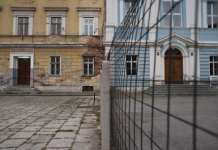Some people expect from the big popular revolts of the Arab World to reach Sub-Saharan Africa. But, african remember their past and learnt from it. Now,They are more suspicious towards the emergence of the various « Springs ».
When medias analyse political events, they often use old expressions and bring them up to date, it’s a kind of recycling industry. Nothing gets lost, everything gets recovered. Especially evocative expressions which have the unequaled merit of being understandable without really giving a clear explanation. After making Prague famous in 1968, the idea of a liberating spring found a second life 43 years later on mediteranean shores. In our times, we can see « thrifty » revolutions without many casualties, they made carnations blossom in Portugal, draped themselves in velvet 10 years later in Czechoslovakia, before adorning themselves with roses in Georgia in 2003 and spreading the fragrance of jasmine in Tunisia this year.
No matter if the situations are fundamentally different, some columnists and experts made a hasty hotchpotch, hurried to take advantage of the opportunity to : embellish the revolt for democracy with examplary epic stories, give a weak and simplified analysis of the situation and avoid prospective studies.
These flimsy analysises are really unfortunate because they unquestionably distort extraordinary events, symbols of bravery and social changes with the great uprising of citizens. Tunisia, Egypt, Lybia and Syria’s situations are more likely to be questionned than generalized. There are many reasons for that: the way events take place, their uncertain endings, the balance of power between the different protagonists, and the strong uncertainties they carry . More and more analysts agree on that point. Thus, these revolutions or rebellions can’t be neither considered as exemplary models, far from being established, nor as an universal inspiration power. In our opinion, Subsaharan Africa is and will always remain quite indifferent to the inspiration born of the Arab spring. There are three main reasons.
The abortive « great evenings »
The first reason is that an important part of Africa plunged into a democratic turmoil during the 1990s similar to the one running some Arab world areas. The doble influence of the famous East wind from the soviet bloc and (for french-speaking countries) the François Mitterand speech at the France-Africa summit in La Baule had some part in it. Benin shaped the path of massive changes by succeeding the pacific transition from a one-party government to a political system. Moreover, an important event occurred, Benineses also proposed a modus operandi which had been renewed in different ways by other continental states: organization of an inclusive national conference to give a review of the situation, introduction of a complete multiparty system and the organization of free elections.
The democratic change, negociated under the pressing insistence of sponsors, produced uneven results. In some countries, governments, more upset than really shaken, cleverly carried out an institutionnal face-lift, opening the democratic game but preserving a substantial bonus to the better organized outgoing one. In other cases, the new political forces didn’t hesitate to resort to « old system » methods in order to maintain their power. In the end, few countries have real possibilities of operating changes.
So, Sub-Saharan Africa still remembers these abortive « great evenings » which have been followed by small bleak mornings. African street is neither resigned nor passive ( last cases proved this idea). But Sub-Saharan africans don’t believe that an exceptional popular mobilization could bring a drastic political change anymore. They are reinforced in this belief by the quite recent examples of kenya and Zimbabwe when, in the aim of preserving social situation, social and political changes have been cancelled by some politicians’arrangements , established after some weeks of troubles and violences. This falsely neutral situation was more applied as it was prefered by foreign african mediators who wanted to rescue it and most of the time, supported the status quo.
The second reason of Sub-Saharan reservation is also linked to his 1990’s past and its following years. The famous bonus for democracy, promised by sponsors, never reached the expectations’level. For their part, new settled governments hardly improved life conditions of citizens and generally didn’t achieve to develop a social justice. Societies, hoping to live differently, could just survive. Sub-Saharans notice that, in countries touched by revolutions, disillusion signs increase in people’s minds and they feel that it’s an historical repeat twenty years later in other regions and they absolutely don’t want to experience that again.
A predetermined failure or victory
The last reason of the weak appeal of Arab Spring in Sub-Saharan Africa is the ambiguous behaviour of Europe and United States of America towards these revolts in the Maghreb and the Near East. Slow reactions and the lack of enthusiasm towards Syria, Bahrain and Yemen’s events contrasted with the harshness and the radicalism of the libyan case. Diplomatic isolation, financial stifling, military weakening, all strengths have been used to make Khaddafi vulnerable to the rebel action. NATO’s air raids especially made a bad impression in Sub-Saharan’s public opinions. Most of them considered that it was an instrument of neocolonialist reconquest. Because of sustained airstrikes and the distort view of reality gave by some medias, public opinions concluded that the West was more interested in the defense of its own economic and geostrategic interests than the emergence of new democracies. Thus, in their point of view, the failure or victory of popular uprisings were predetermined by what great powers predicted about the consequences of rebellions.
By listing all these reservations, we understand why an Arab Spring contagion of Sub-Saharan Africa has little chance to take place, even if the ills afflicting Arab society are known by this part of Africa and the fact that more and more Sub-Saharans openly express their desire of a radical change. These populations, with their two decades of experiences, are neither convinced of the unavoidable victory of a great popular movement nor the protection of people’s interests by a new government. Moreover, they don’t believe that a new governance will bring a real progress in their life conditions. But let’s repeat that, Sub-Saharan people don’t just talk about that and social movements regularly shaking the Sub-Saharan area prove it. These « small Springs » don’t suficiently attract expert attentions, but they show that nowadays, nobody can rule with impunity or in « traditionnal way ». That means: without consideration and not in touched with people grievances.
Traduction : Morgane Chatel
Gaoussou Drabo
Derniers articles parGaoussou Drabo (voir tous)
- Arab Spring, Sub-Saharan Spring? An impossible contagion… – 1 octobre 2011
- Printemps arabe, printemps subsaharien ? L’improbable contagion… – 24 septembre 2011







